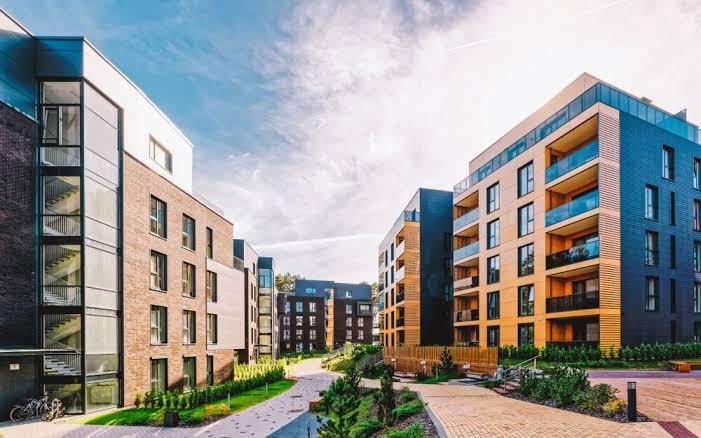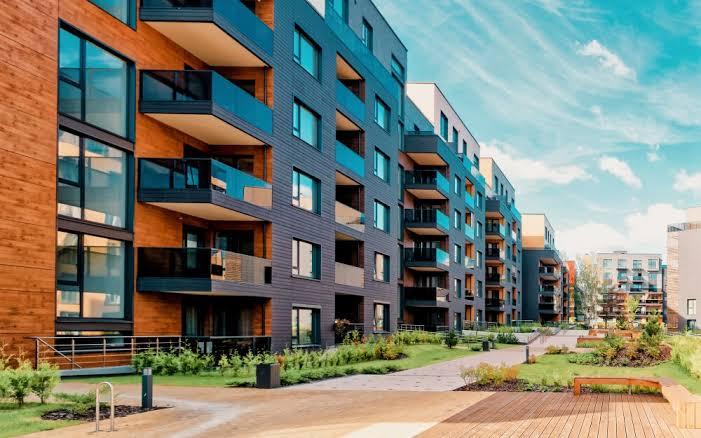Take Advantage of Limited-Time Offers on Luxury Homes with Stunning Features!
Join Us for Exclusive Open House Events This Weekend and Find Your Perfect Home!
Discover Your Dream Home with Our Latest Listings and Personalized Services!
The Indian real estate landscape is undergoing notable transformations in 2025, influenced by economic shifts, policy changes, and evolving consumer preferences. Understanding these trends is crucial for homebuyers, investors, and industry stakeholders aiming to navigate this dynamic market effectively.

After a substantial 21% surge in 2024, residential property prices are stabilizing in 2025, with projections indicating a moderate single-digit increase. This stabilization is attributed to a balanced supply-demand equation and a focus on affordability. While key urban centers may witness steady price appreciation, peripheral areas are expected to see sharper hikes due to infrastructure developments and increased connectivity.
The Reserve Bank of India's recent 0.25% repo rate cut has positively impacted home loan interest rates, making homeownership more accessible. This monetary policy shift is expected to boost demand, particularly in the mid-segment housing sector, as buyers benefit from reduced borrowing costs.
The luxury housing segment is experiencing heightened demand, primarily driven by affluent buyers seeking premium properties. This trend contributes to an anticipated 6.5% rise in home prices in 2025, as the top 1% of wealth holders continue to invest in high-end real estate. Consequently, the market is witnessing a surge in luxury project launches and sales.
India's office real estate sector is on an upward trajectory, with gross leasing activity reaching record highs. Key industries such as Information Technology (IT), Banking, Financial Services, and Insurance (BFSI), and Global Capability Centers (GCCs) are driving this growth. The demand is shifting towards high-tech, sustainable Grade-A office spaces equipped with advanced workplace management tools and energy-efficient systems.
Increased consumer spending has revitalized India's retail sector, leading to a surge in leasing activities. Shopping malls are evolving into experiential hubs, offering amenities beyond traditional shopping to attract a diverse customer base. Similarly, the hospitality industry is witnessing robust growth, with high occupancy rates and significant investment inflows, reflecting a strong demand for branded and organized hotel accommodations.

Affordability concerns and infrastructure enhancements are steering homebuyers towards suburban areas. These regions offer more spacious and cost-effective housing options, appealing to those seeking a balance between urban amenities and affordability. The trend indicates a growing preference for suburban living, especially among first-time homebuyers and middle-income groups.
Despite forecasts of slower economic growth and persistent inflation, the Indian housing market exhibits resilience. The sector remains stable, particularly in the middle-income housing category, as developers and investors adapt to changing economic conditions without significant disruptions.
Government initiatives focusing on infrastructure development, such as enhanced road networks, metro expansions, and smart city projects, are positively influencing real estate markets. These developments improve connectivity and accessibility, making peripheral areas more attractive for residential and commercial investments.
The adoption of technology in real estate practices is accelerating. Virtual property tours, digital transactions, and AI-driven customer services are becoming standard, enhancing the buying experience and operational efficiency for developers and real estate agents.
There is a growing emphasis on sustainable construction practices and green buildings. Developers are incorporating eco-friendly designs and energy-efficient systems to meet the increasing demand for environmentally responsible living and working spaces.
The growth of smart cities in India is revolutionizing urban spaces and redefining the real estate industry. This blog discusses how smart city projects are impacting urban real estate, with a focus on the advantages for investors, developers, and residents.
Government policies have a significant influence on the Indian real estate industry. RERA to GST, all the reforms have an effect on property consumers, investors, and builders. This blog discusses how government policies affect market trends, investment prospects, and the...